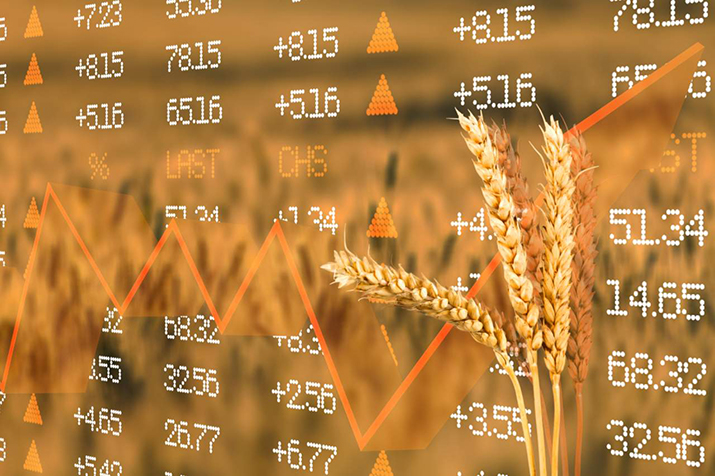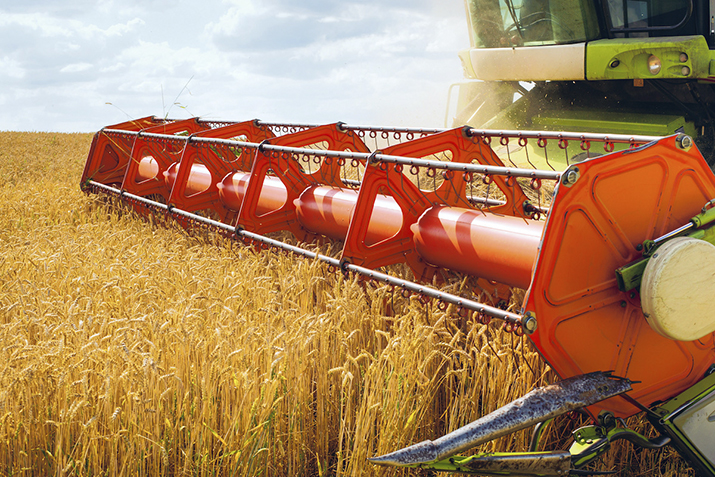HAPPENING AT THE UN
FOOD SAFETY AT RISK
National flags on product packaging are just a publicity stunt. A supply chain entirely sourced from a single country is a utopia, but not even something we should hope for.
Autarchy has never existed and “made in” any place may be more a style rather than the actual origin, and it almost never means that all the components, ingredients, or parts of a product are grown or manufactured in a specific geographic area. This becomes clearly evident when the flow of goods is put at risk, as is happening in this period due to the Russian invasion of Ukraine. But that is not enough. Even if a country was able to autonomously produce a certain commodity, which is highly unlikely, to do so it would need energy which is often imported, at least in part. In short, it might not be true that « over time a flapping of a butterfly's wings in Brazil may cause a hurricane in Texas », as those chaos theory individuals would argue, but certainly from a breakdown in a nuclear power plant that seemed so far away to a war and passing through all the stages in-between, everything reminds us that as long as we live on the same planet, we are interconnected.
Those who are still not convinced may verify this by going to the gas station, where they can see for themselves that the price of fuel depends on a complex global political balance, or by paying the electricity bills, which are not firmly stable, but are linked to decisions taken at the UN, the Council of Europe, the European Union, NATO, or the Kremlin, all of which turn out to be not so far away. But if we think that filling up the car is our biggest problem, we risk making a mistake. In fact, it seems that what we risk is our daily bread, and not in a figurative sense. Qu Dongyu, Director General of the UN Food and Agriculture Organization, FAO, recently reminded us that « Russia is the world's largest exporter of wheat and Ukraine the fifth. Together, they account for 19 percent of global barley production, 14 percent of wheat production and 4 percent of corn, contributing to more than a third of global grain exports. They are also the main suppliers of rapeseed, as well as covering 52% of the world market for sunflower oil exports. The world fertilizer market is also particularly concentrated with Russia being the main supplier ».
In February 2022, prices, already on the rise since the second half of 2020, reached record levels
The export restrictions imposed on Moscow will therefore have significant repercussions on food security, especially for the approximately fifty countries that depend on Russia and Ukraine for more than 30 percent of their grain supply. But when it rains it pours and so in many cases, these are less advanced or low-income geographical areas that already suffer from a food deficit: North Africa, Asia or the Near East. The West must not consider itself too safe, however, as many European countries rely on Russia for 50 percent of their fertilizer supplies, and a shortage of such products could last until next year.
The data provided by the FAO says it all: «In February 2022, food prices, already on the rise since the second half of 2020, reached record levels. Throughout 2021, wheat and barley rose by 31%, while the prices of rapeseed oil and sunflower oil rose by more than 60%. High demand and volatile natural gas prices have also pushed up the cost of fertilizers ».
Russia also holds a dominant position in the global energy market, being responsible for 18 percent of global coal exports, 11 percent of oil and 10 percent of gas exports. The agricultural sector requires high energy consumption. The problem is evident and the FAO, through the voice of its director general, is striving to propose various solutions.
Emotional reactions must be avoided and long-term effects evaluated before any measures are taken
First of all, everything possible must be done « to protect the production and marketing activities necessary to respond to domestic and international demand » and « in order to do this, it will be necessary to protect crops, livestock, food processing infrastructures and any logistics systems that are still intact ». But then it will be necessary to « find a new and diversified group of food suppliers», and this is a plea that has long been coming from anyone involved in this area of activity. It is not an economic question, but rather a political one. In times of emergency like these, the FAO continues, « governments must expand their social safety nets to protect vulnerable people. In Ukraine, international organizations must intervene to help reach those most in need, bearing in mind that the number of people affected by poverty as a result of the conflict will increase throughout the world: we must therefore provide them with timely and targeted social protection programs ».
In situations like these, it is necessary to think about both the future and the now. It is not easy to keep the two perspectives together, but we need to make a start. Meanwhile, in the coming years and decades, we should strengthen transparency and dialogue. « More information on world market conditions would help governments and investors make informed decisions in times of volatility. Initiatives such as the G-20 Agricultural Market Information System increase transparency, providing objective and timely assessments », notes Qu Dongyu, adding that for the moment, it is better to avoid emotional reactions and « evaluate the effects on international markets before implementing measures aimed at guaranteeing food supplies ». To give a practical example, it may be noted that « a reduction in import tariffs or the use of export restrictions could help solve food security problems in a single country in the short term, but would cause prices to rise on a global scale ». Indeed, we are all interdependent.








